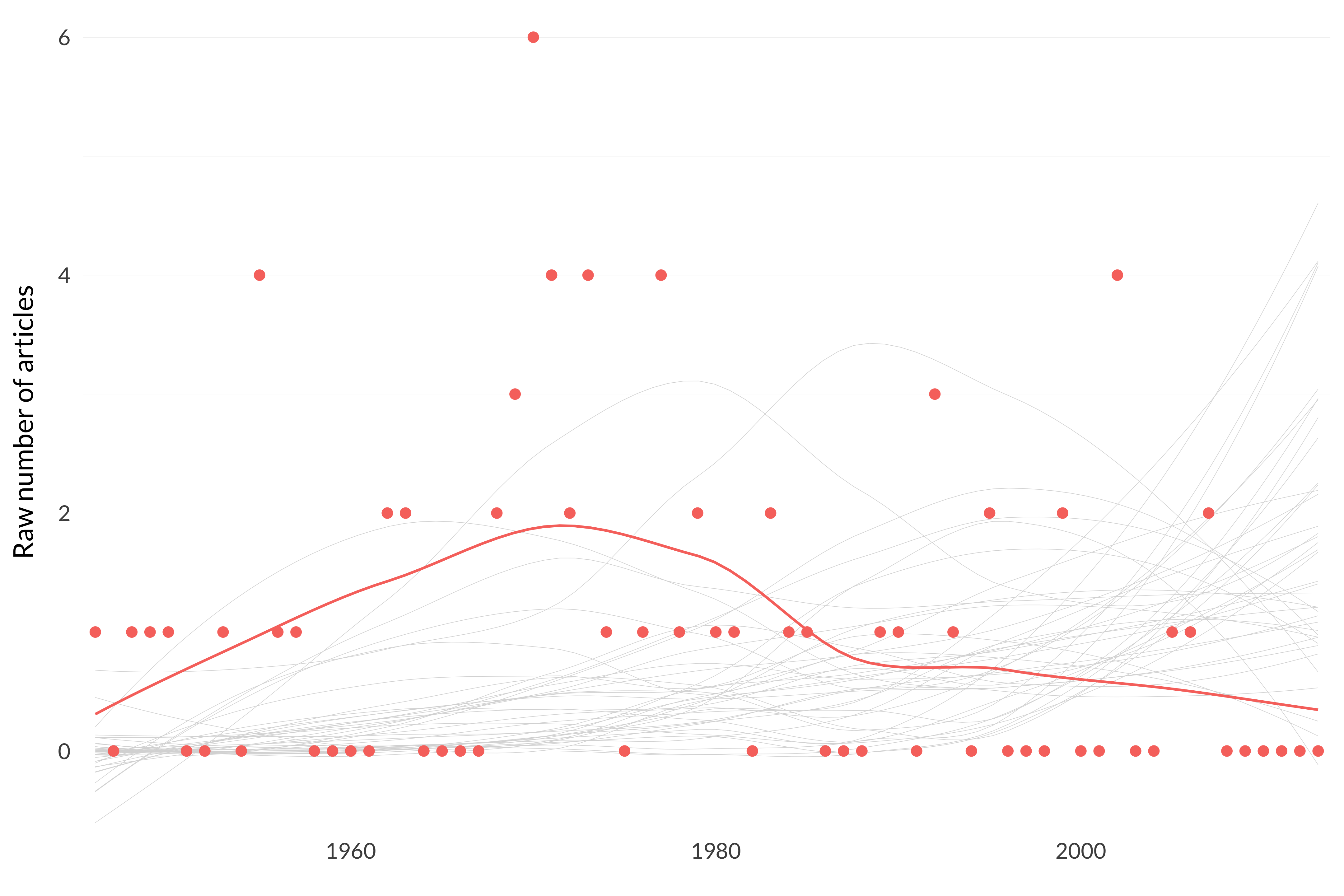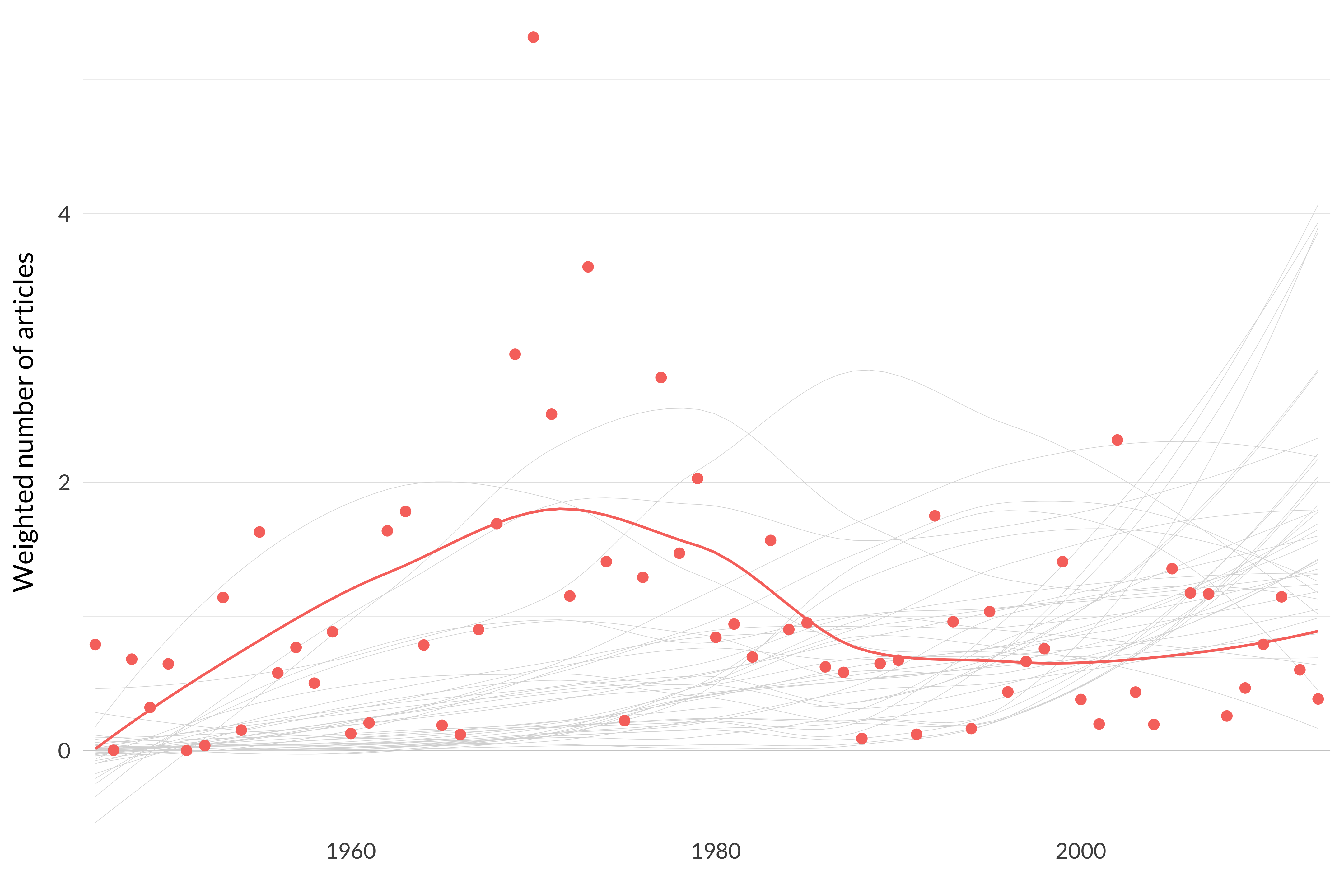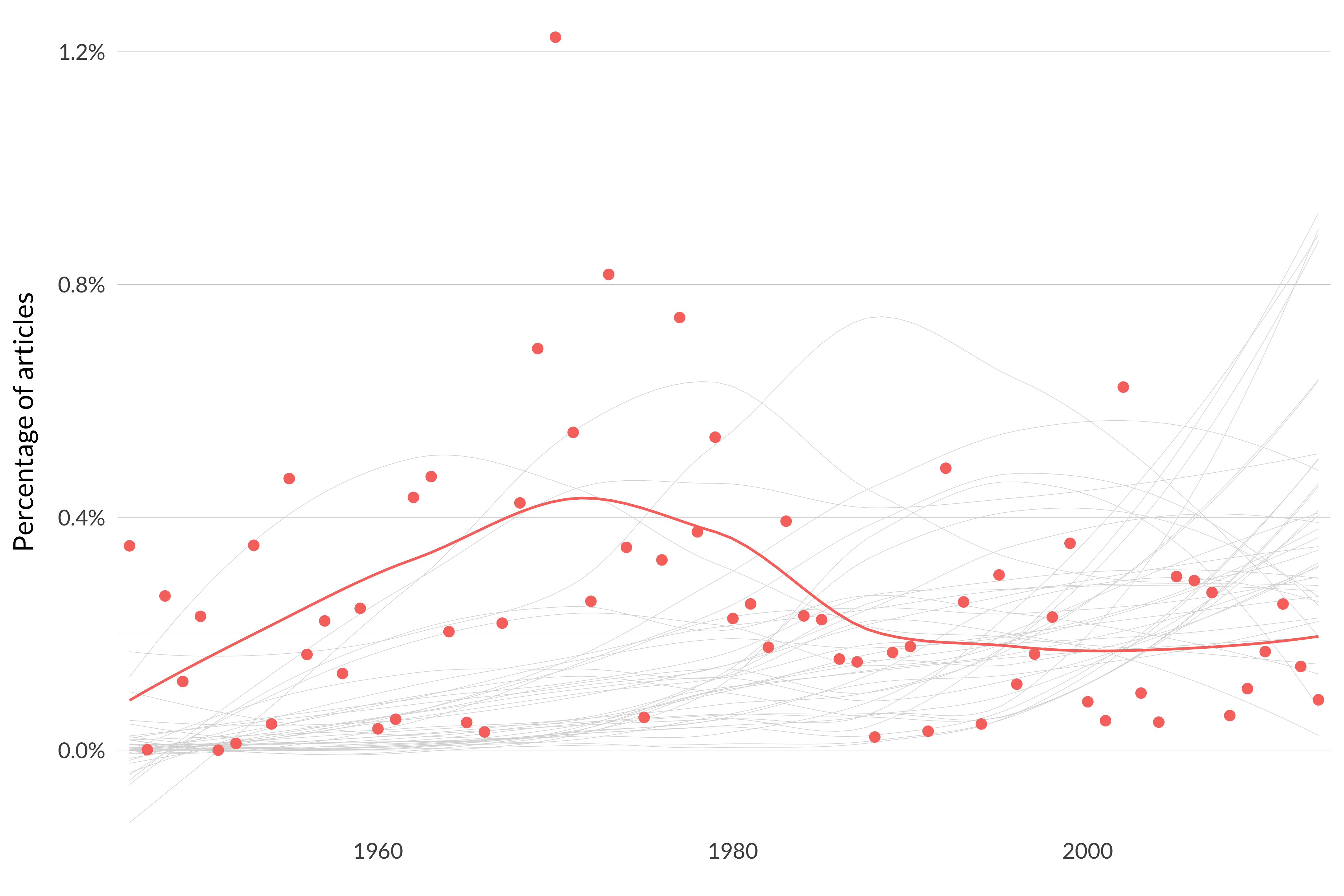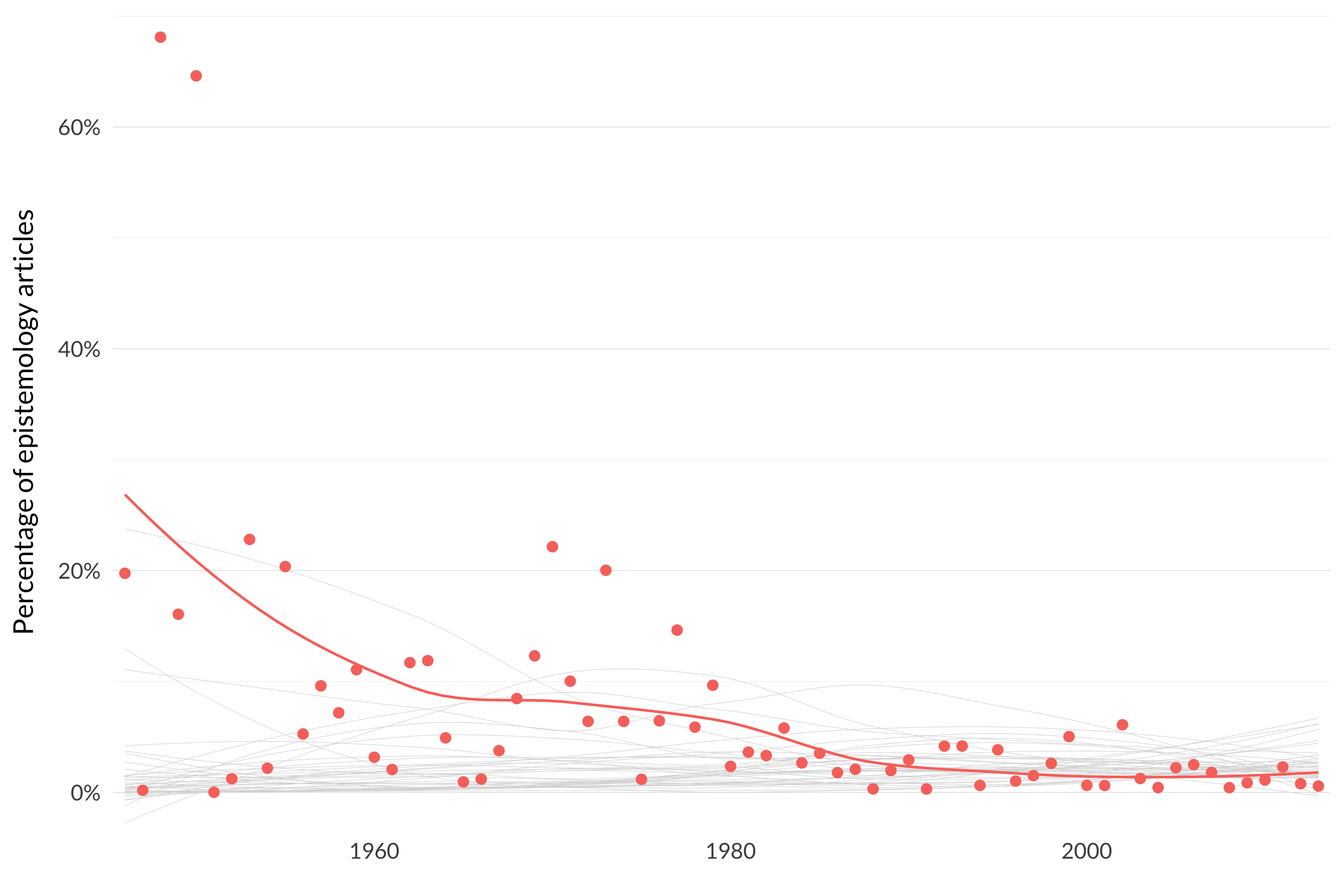6.1 Knowledge Of Mind
Keywords: pain, memory, mental, object, conscious, physical, past, event, events, knowing, known, objects, states, knew, facts
Number of articles: 82
Weighted number of articles: 77.52744

Figure 6.9: Raw number of articles in topic 1, knowledge of mind.

Figure 6.10: Weighted number of articles in topic 1, knowledge of mind.

Figure 6.11: Percentage of philosophy articles in topic 1, knowledge of mind.

Figure 6.12: Percentage of epistemology articles in topic 1, knowledge of mind.
Characteristic Articles
- Joseph Margolis, 1970, “Indubitability, Self-Intimating States, and Logically Privileged Access,” Journal of Philosophy 67:918–31.
- Paul Hayner, 1970, “Meyers on Knowledge by Acquaintance: A Rejoinder,” Philosophy and Phenomenological Research 31:297–8.
- Paul Hayner, 1969, “Knowledge by Acquaintance,” Philosophy and Phenomenological Research 29:423–31.
- Joseph Margolis, 1977, “Remembering,” Mind 86:186–205.
- Robert G. Meyers, 1970, “Knowledge by Acquaintance: A Reply to Hayner,” Philosophy and Phenomenological Research 31:293–6.
- Andrew Naylor, 1973, “On the Evidence of One’s”Memories”,” Analysis 33:160–7.
- Grace A. De Laguna, 1936, “Being and Knowing: A Dialectical Study,” Philosophical Review 45:435–56.
- Robert K. Shope, 1973, “Remembering, Knowledge, and Memory Traces,” Philosophy and Phenomenological Research 33:303–22.
- G. E. Moore and H. W. B. Joseph, 1929, “Symposium: Indirect Knowledge,” Proceedings of the Aristotelian Society (Supplementary Volume) 9:19–66.
- James Lindsay, 1920, “The Nature of Knowledge,” Philosophical Review 29:80–2.
Highly Cited Articles
- Alvin I. Goldman, 1976, “Discrimination and Perceptual Knowledge,” Journal of Philosophy 73:771–91. (0.5482201)
- John McDowell, 1995, “Knowledge and the Internal,” Philosophy and Phenomenological Research 55:877–93. (0.3215531)
- John Hyman, 1999, “How Knowledge Works,” The Philosophical Quarterly 49:433–51. (0.5691407)